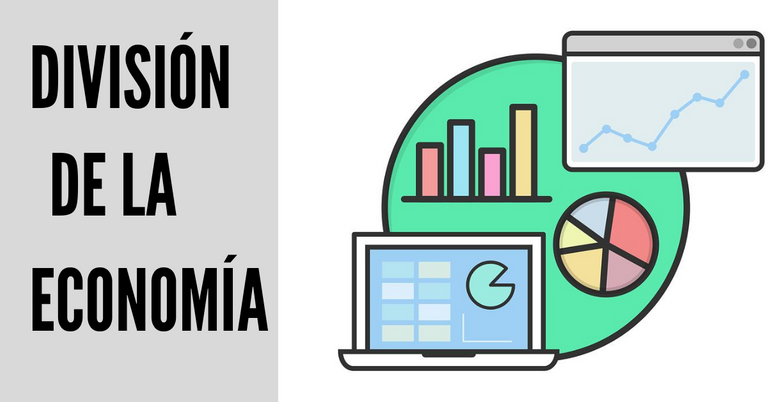División de la economía

Buenos días, tardes o noches comunidad de Peak D , esta ya es la segunda publicación de una serie de publicaciones sobre la economía.
La economía distingue 2 ámbitos, el positivo y el normativo, estos dan lugar a 2 puntos de vista diferentes:
La economía positiva:
Analiza los fenómenos económicos estableciendo teorías que lo expliquen.
Se distinguen 2 grandes campos:
- Teoría económica: trata de encontrar leyes generales que expliquen el comportamiento económico. En ella se aprecian 2 grandes áreas de conocimiento :la macroeconomía y la microeconómica
- Macroeconómica: estudiar el comportamiento global de la economía(país, región ,economía mundial...)
- Microeconomía: estudia el comportamiento individual de las unidades económicas de consumo(familias) y de producción(empresas).También se ocupa de las operaciones de compra/venta en los mercados donde ambas unidades se interrelacionan.
Ej: Un incremento del 2% de la fruta es un estudio o análisis microeconómico ;pero un incremento de un país durante 1 año es un análisis macroeconómico.
- La economía aplicada: describe la realidad pasada(historia económica) y la realidad presente de un entorno geográfico(estructura económica).
La economía normativa:
Resuelve los problemas económicos mediante la adopción de normas o medidas que se apoyan en las teorías económicas .A esta parte parte de la ciencia se le conoce como "Política económica"(Sus actuaciones suelen ser adoptadas por los gobiernos).
Estas son las ramas en las que podemos clasificar las distintas partes de la economía .También cabe resaltar que esta división y este estudio esta hecho como en cualquier otra ciencia social, ya que la economía es una de las principales ciencias sociales.
Así , el objeto de estudio de la economía es la realidad económica y el sujeto de la misma es el ser humano cuando realiza actividades económicas. Por tanto todas las ciencias que se ocupan de las necesidades humanas (ciencias sociales) tienen relación con la economía. De este modo son básicas sus relaciones con el Derecho, la Historia, la Filosofía y la Sociología.
Por otra parte , la economía necesita apoyarse en las ciencias experimentales ,tales como.la estadística y las matemáticas.
Así doy por concluido la segunda publicación de la serie , seguiré ampliando este tema muchísimo y nos volveremos a ver mañana con otra publicación , ¡Un saludo!👋
Good morning, afternoon or evening Peak D community, this is already the second in a series of posts on economics.
Economics distinguishes 2 domains, the positive and the normative, these give rise to 2 different points of view:
Positive economics:
It analyses economic phenomena by establishing theories to explain them.
Two main fields can be distinguished:
- Economic theory: it tries to find general laws that explain economic behaviour. There are two main areas of knowledge: macroeconomics and microeconomics.
1. Macroeconomics: study the global behaviour of the economy (country, region, world economy...).
2. Microeconomics: studies the individual behaviour of economic units of consumption (families) and production (companies), and also deals with buying and selling operations in markets where both units are interrelated.
E.g.: A 2% increase of fruit is a microeconomic study or analysis; but an increase of a country during 1 year is a macroeconomic analysis.
- Applied economics: describes the past reality (economic history) and the present reality of a geographical environment (economic structure).
Normative economics:
It solves economic problems by adopting rules or measures based on economic theories. This part of the science is known as "economic policy" (its actions are usually adopted by governments).
These are the branches into which we can classify the different parts of economics. It should also be noted that this division and this study is made as in any other social science, since economics is one of the main social sciences.
Thus, the object of study of economics is the economic reality and the subject of the study is the human being when he/she carries out economic activities. Therefore, all sciences that deal with human needs (social sciences) are related to economics. Thus, its relations with law, history, philosophy and sociology are fundamental.
On the other hand, economics needs to rely on experimental sciences such as statistics and mathematics.
This concludes the second publication of the series, I will continue to expand on this topic and we will meet again tomorrow with another publication, best regards!
Translated with DeepL.com
Congratulations @certrading! You have completed the following achievement on the Hive blockchain and have been rewarded with new badge(s) :
Your next target is to reach 30 posts.
You can view your badges on your board and compare yourself to others in the Ranking
If you no longer want to receive notifications, reply to this comment with the word
STOPTo support your work, I also upvoted your post!
Su post ha sido valorado por @ramonycajal